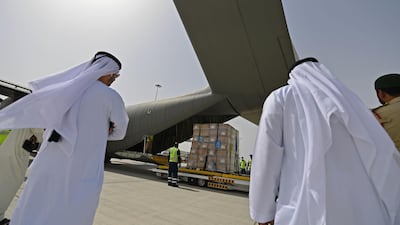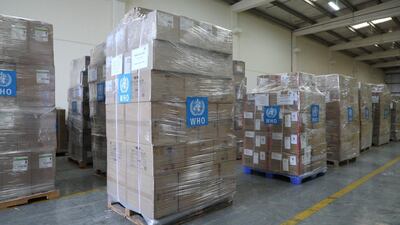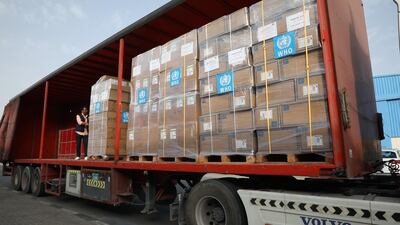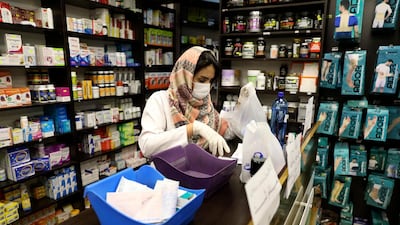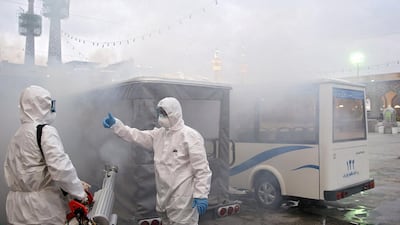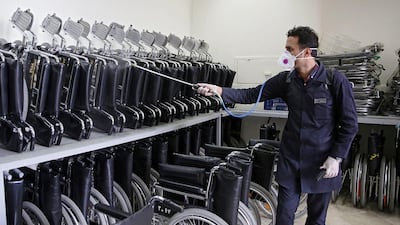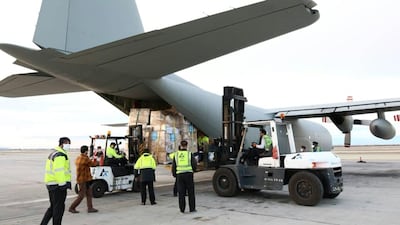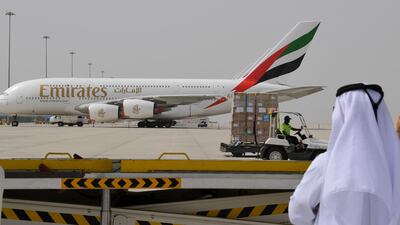Governments must start preparing in advance for transporting billions of Covid-19 vaccine doses around the world, a massive and complex logistics task, or risk severe capacity constraints, the International Air Transport Association (Iata) warned.
Providing just a single dose of the vaccine to 7.8 billion people worldwide would fill more than 8,000 Boeing 747 cargo planes, Iata said, highlighting the enormous size of the deliveries once the vaccine is approved and available for distribution.
"We now turn our eyes to the next challenge, which is the role aviation could play in vaccinating the world," Glyn Hughes, Iata's global head of cargo, told reporters in an online press conference. "If there [are] multiple doses ... then you can see that there will be a considerable burden on the aviation sector to help play a role in transporting these critical commodities around the planet."
Safely delivering the vaccines will be "the mission of the century" for the global air cargo industry and requires careful planning now by governments and the vaccine manufacturers, Alexandre de Juniac, Iata's director general said in a statement on Wednesday.
"We urge governments to take the lead in facilitating co-operation across the logistics chain so that the facilities, security arrangements and border processes are ready for the mammoth and complex task ahead," Mr de Juniac said.
Among the key challenges will be transporting the vaccine, a highly sensitive product, at a temperature ranging from 2 degrees Celsius to 8 degrees Celsius. It is a difficult task considering the temperature changes between airports, onboard a plane, on arrival and during local distribution.
"It is critical when moving something as sensitive as that, that the right facilities are in place," Mr Hughes said.
If the vaccine requires transportation in a frozen state, in addition to the scale of the distribution, then the magnitude of the challenge makes it clear that preparation is needed in advance, he said.
Key considerations include border procedures that ensure fast processing times, adequate security measures, adequate staffing, appropriate handling and customs clearance, Iata said.
Vaccines are a valuable commodity, so theft, loss and tampering are also a concern, meaning security of transportation is crucial.
Governments need to work with each other to ensure a harmonised reopening of borders, Mr Hughes said.
"There would be some form of global airlift needed," he said, referring to the transportation of millions of tiny vials of vaccine. Given the scale of production and the time required to manufacture vaccines on a large scale, shipments are likely to be phased, he said.
Agencies such as the WHO and other relevant UN bodies would identify and devise a distribution mechanism for vaccines, Mr Hughes said.
However, capacity constraints facing the air cargo industry remain a major concern in planning vaccine transportation programmes.
"Even if we assume that half the needed vaccines can be transported by land, the air cargo industry will still face its largest single transport challenge ever," Mr de Juniac said. "If borders remain closed, travel curtailed, fleets grounded and employees furloughed, the capacity to deliver life-saving vaccines will be very much compromised."
Air cargo, considered one of the least glamourous aspects of flying, is emerging as one of the few bright spots for global airlines amid the gloomy reality imposed by the Covid-19 pandemic.
Air freight demand is much more robust than passenger services, recording a 13 per cent decline year-on-year, compared to an 80 per cent annual decline for passenger traffic in July, Iata said.
The industry is "entering a reasonably positive environment" for air cargo demand, driven by higher export orders, Iata chief economist Brian Pearce said in the conference.
_____________
'Beast of the skies' delivering vital medical supplies around the globe
_____________
In the next couple of months, air cargo will see volumes improve from the 13 per cent decline in July, he said.
For airlines, this means that their cargo business is becoming increasingly important, partially offsetting the collapse in passenger revenue, but not enough to come to their rescue, he said.
Despite the demand recovery, there is a cargo capacity shortage due to the grounding of passenger planes, particularly widebodies, which usually carry 50 per cent of shipments.


